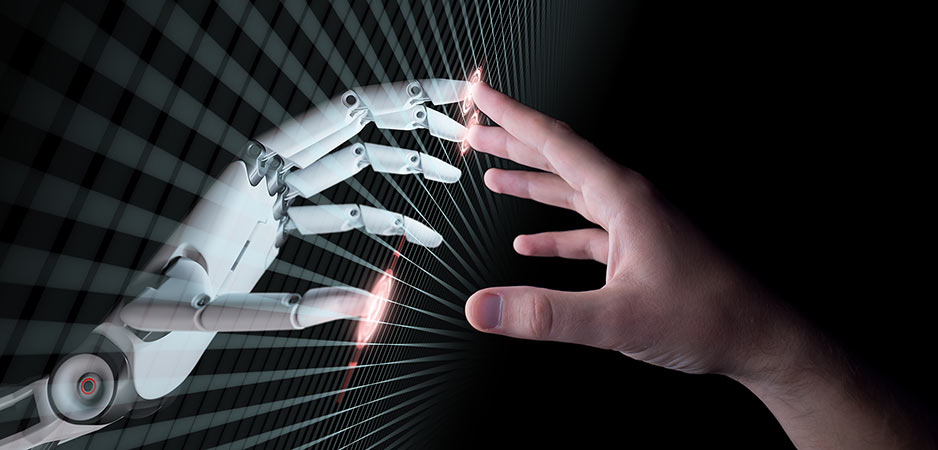No one doubts that Elon Musk is rich, which, according to a fundamental axiom of US culture, suggests that he is smart. Everyone knows the proverbial wisdom often directed at a category of humanity called losers: “If you’re so smart, why aren’t you rich?”
Musk himself has absolutely no doubt that he is smart. Like any good American (even those born in South Africa), he seems to realize that his expanding wealth is the greatest proof of his intelligence. That may explain why he allows himself to say (or tweet) things that not everyone perceives as smart. For example, he wrote in a tweet last week, “Aliens built the pyramids obv.”
Can an Indian Family Save Humanity From COVID-19?
In any case, the Egyptians didn’t perceive that as smart and invited Musk to come and have a look, following the proverbial wisdom that “seeing is believing,” at least for smart people.
It is of course possible to be rich without being smart. In a bold thought experiment, one might even imagine the case of a sitting president who inherited his wealth but seems devoid of intelligence. It might even be reasonable for a social scientist to posit the hypothesis that inheritance of wealth correlates negatively with intelligence. But, more fundamentally, Americans really do have difficulty understanding why anyone who is smart is not rich. What’s the point of intelligence if it doesn’t produce a steady income stream?
The word “smart” itself has always been ambiguous in English. For most Americans, smart simply means intelligent. To Brits, until recently, smart tended to mean well-dressed or what Americans would call “spiffy.” Thanks to their exposure to American movies, pop music and television, the British now have the intelligence to understand what smart really means.
So, while the status of the idea of smart is still in a slight state of flux, a new problem of ambiguity has emerged. It concerns the notion of intelligence, which now exists in two flavors: human and artificial. The battle between them has become the new match of the century. Who will win? Who deserves to win? As Musk and others have been telling us for several years, it is now time to take sides.
Some see this opposition as an example of US culture’s obsession with turning everything into a contest between two radically opposed adversaries, each seeking to prove its superiority over the other. All distinctions, even intellectual ones, are subject to the law of competition, which — whether in sports or academic debate — offers the public the exciting spectacle of an existential struggle (that nevertheless tends to enrich both surviving opponents).
So, despite his lapse concerning the pyramids, we know Musk is smart. But he wants us to know that he is not just smart, but smarter than other smart people. To bring home the point, with reference to the contest between human and artificial intelligence (AI), he now blames “smart” people for failing to understand what only he knows to be the danger.
Here is how he frames it: “My assessment about why A.I. is overlooked by very smart people is that very smart people do not think a computer can ever be as smart as they are. And this is hubris and obviously false.” Musk, the future master of the solar system, cannot himself be accused of hubris. (Note his use of “obviously” that appeared in his comment on the pyramids).
Musk added this: “We’re headed toward a situation where A.I. is vastly smarter than humans and I think that time frame is less than five years from now. But that doesn’t mean that everything goes to hell in five years. It just means that things get unstable or weird.”
Here is today’s 3D definition:
Smart:
Intelligent and rich, and as a consequence — though this need not be mentioned — influential or permitted to exercise power over other people
Contextual Note
There is a sense in which the idea of smart clearly diverges from that of intelligence in US culture. To be intelligent denotes a person’s ability to understand complex phenomena. To be smart connotes the use of intelligence to get one’s way. In a culture that stresses self-reliance, smartness translates as assertiveness. It’s all about achieving success, fame and wealth. That essentially means that it is better to be smart than intelligent.
At the same time that he is promoting the products of a company he created to produce marketable AI products, Musk has sounded the alarm about the risk of domination by non-human intelligence. This may sound paradoxical, but it boils down to Musk’s finely-tuned ability in the art of scientific assertiveness some people call marketing.
When Musk says that “very smart people do not think a computer can ever be as smart as they are,” he wants the public to understand that he knows something “very smart people” don’t know. Musk warned about the dangers of AI back in 2016, predicting at that time that “humans risk being treated like house pets by artificial intelligence unless technology is developed that can connect brains to computers.” The Independent’s reporter, Anthony Cuthbertson, reminds us that shortly “after making the remarks, Mr Musk announced a new brain-computer interface startup that is attempting to implant a brain chip using a ‘sewing machine-like device.’”
That is a perfect example of what some people would call marketing smarts. Create fear and then offer a solution to the threat. It is worth reflecting on why AI could never be smart enough to accomplish anything similar. AI simply can never become as smart as Elon Musk.
The first reason is that AI, focused on accumulated knowledge and ensuring the efficient treatment of data, cannot decide to be provocative in the way Musk can. He can make statements that have nothing to do with objective reality or existing bodies of knowledge. They sound authoritative because Musk himself is known to be smart.
Making such statements — whether they concern the future behavior of AI or the construction of the pyramids — are smart things to do because they assertively advance Musk’s interests. Those interests simultaneously include the financial health of his companies and his ego. This highlights the problem AI will face in its future competition with human smartness. It will lack the drive associated with financial interest, the force that defines and models “smart” people’s behavior in today’s consumer society. More significantly, it will utterly lack the notion of ego.
In other words, AI may end up being more intelligent than the brightest scientist, the cleverest lawyer or the most qualified engineer. It may even write books more popular than Harry Potter. It will probably even understand that aliens could not have constructed the pyramids. But it won’t beat Musk in doing what smartness is all about: being assertive and getting one’s way.
Historical note
For the ancient Romans, the verb “intelligere” meant something like “to realize” or “to understand.” But it also includes the sense of noticing, perceiving, estimating and judging. It supposes something that AI by definition cannot possess: proprioception or kinesthesia, a concept that has been defined as “the body’s ability to sense its location, movements, and actions.”
For the Romans, the notion of intelligence assumed proprioception as its starting point. The Romans even talked about their verbs starting with the idea of subjectivity, in the first person. For a Roman, the verb was “intelligo” (I understand) not “intelligere” (to understand). They assumed there was a subject looking at the world and interacting with it.
As the age of science blossomed in Europe in the 17th century, subjectivity began to take a back seat to a new obsession with objectivity. An entire civilization sought to understand the universe as essentially a sophisticated mechanism. That impelled the scientist and philosopher René Descartes to assert — against the objectivity-oriented trend that he himself was promoting — that the source of intelligence was the undefinable “I.” “Cogito ergo sum.”
Just as “cogito” didn’t require the subject “ego,” even today Latin languages such as Italian and Spanish do not require stating “io” or “yo” to precede a verb. The perceiving subject is understood to be the source. But in English and northern European languages, we simply aren’t allowed to say, for example, “think therefore am.” We need to hear about the ego.
And just as no one doubts Elon Musk’s wealth or intelligence, they don’t doubt that everything he says originates in his ego.
*[In the age of Oscar Wilde and Mark Twain, another American wit, the journalist Ambrose Bierce, produced a series of satirical definitions of commonly used terms, throwing light on their hidden meanings in real discourse. Bierce eventually collected and published them as a book, The Devil’s Dictionary, in 1911. We have shamelessly appropriated his title in the interest of continuing his wholesome pedagogical effort to enlighten generations of readers of the news. Click here to read more of The Daily Devil’s Dictionary on Fair Observer.]
The views expressed in this article are the author’s own and do not necessarily reflect Fair Observer’s editorial policy.
Support Fair Observer
We rely on your support for our independence, diversity and quality.
For more than 10 years, Fair Observer has been free, fair and independent. No billionaire owns us, no advertisers control us. We are a reader-supported nonprofit. Unlike many other publications, we keep our content free for readers regardless of where they live or whether they can afford to pay. We have no paywalls and no ads.
In the post-truth era of fake news, echo chambers and filter bubbles, we publish a plurality of perspectives from around the world. Anyone can publish with us, but everyone goes through a rigorous editorial process. So, you get fact-checked, well-reasoned content instead of noise.
We publish 2,500+ voices from 90+ countries. We also conduct education and training programs
on subjects ranging from digital media and journalism to writing and critical thinking. This
doesn’t come cheap. Servers, editors, trainers and web developers cost
money.
Please consider supporting us on a regular basis as a recurring donor or a
sustaining member.
Will you support FO’s journalism?
We rely on your support for our independence, diversity and quality.






